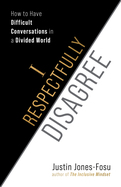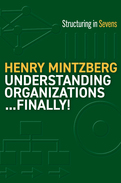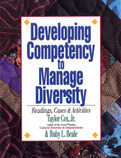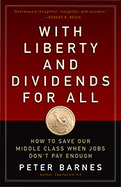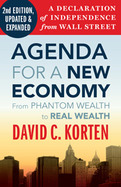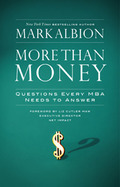Divisions are on the rise around the world, and 2024 may well be a peak year. We're losing the ability to disagree without dehumanizing. There is a deep need for this practical and accessible guide to having challenging conversations in any situation, from the workplace to the classroom to the dinner table.
It's not about saying the right words at the right time but something vastly deeper. In this book, you'll discover the 5 pillars of respectfully disagreeing:
- Challenge your perspective
- Be the student
- Cultivate your curiosity
- Seek the gray
- Agree to respect
With a wide range of examples and exercises throughout, this is a timely and reader-friendly handbook to disagreeing with someone's ideology while passionately pursuing their humanity.
We live in a world of organizations, from our birth in hospitals until our burial by funeral homes. In between, we are educated, employed, entertained, and exasperated by organizations. We had better understand how these strange beasts really work. But where can we go to find out?
Welcome to Understanding Organizations . . . Finally! For half a century, Mintzberg has been observing organizations, advising them, engaging them, and escaping them. Here he offers a masterful update and revision of his 1983 classic, Structure in Fives.
Believing there is one best way to structure organizations is the worst way to do so. A better place to start is by recognizing different species of organizations. Mintzberg identifies seven-personal enterprises, programmed machines, professional assemblies, project pioneers, and others. He explores these forms and the seven forces that drive them toward hybrids and across their life cycles.
You will find no better guide to the care and feeding of these extraordinarily varied and vital creatures than this book.
Recognizing that "managing" diversity has become a critical skill in organizations all over the world, Developing Competency to Manage Diversity shows how the dynamics of diversity affect people on all levels of society and in all kinds of organizations-from individual relationships to community interactions, from city and national governments to work teams and product markets.
Defining diversity as "a mix of people in one social system who have distinctly different, socially relevant, group identities," this volume responds to the increasing need to function effectively in workplace contexts that are culturally, socially, economically, and racially diverse. To this end, it provides managers with tools they need to successfully manage a diverse workforce. Chapters provide specific tasks and activities to:
o Increase awareness of coworkers' cultural backgrounds
o Create a "pro-diversity" organizational climate
o Develop an operational definition of diversity
o Explore how group identity applies to each group member
o Investigate differences of cognitive style
o Customize team-building strategies for diverse groups
Organized in an easy-to-follow, step-by-step format, a set of twenty-three readings, six case studies, and thirty-one activities takes readers through a three-stage learning process. The first stage creates awareness of a diversity-related issue, the second stage develops knowledge and understanding of effective ways to handle that issue, and the final stage outlines practical actions to respond to the issue. The high costs of failing to recognize and manage diversity-absenteeism, dissatisfaction, barriers to contribution, harassment, discrimination suits, reduced efficiency, and lack of communication-as well as the potential to leverage diversity as an organizational resource-should motivate organizations and groups to make full use of Developing Competency to Manage Diversity.
- Provides a comprehensive picture of participation as the system of governance we need to meet the workplace challenges of today, and tomorrow
- Describes what executives, managers, workers, labor unions, customers, and suppliers can do as part of a participative enterprise
- Argues that participative governance is a major issue of our times, affecting all areas of our lives: education, business, government, families, and community organizations
Barnes proposes a simple market-based way to provide supplemental income to all Americans.
- New analysis: Barnes explains why the plight of our middle class is now so dire that conventional policies will no longer save it.
- New solution: Barnes proposes a simple market-based way to provide supplemental income to all Americans.
Economic inequality has become like the weather: everyone talks about it, but nobody knows what to do about it. Working Assets cofounder Peter Barnes has a plan: pay equal dividends to everyone from wealth we own together.
Barnes argues that, thanks to automation, globalization, and winner-take-all capitalism, there will never again be enough high-paying jobs to sustain a large middle class. The only hope lies in nonlabor income-that is, in jobs plus something more. Building on our Declaration of Independence, an essay by Thomas Paine, and a thirty-year-old program in Alaska, Barnes proposes paying monthly dividends to every American. This supplemental income would come from assets we hold in common-the atmosphere, the natural world, our monetary system, and more. Such dividends would not only keep our economy humming but also make it unprofitable to abuse nature.
Barnes's proposal bypasses the current gridlock between left and right; once set up, the dividend system is purely market based. This work is a truly visionary yet eminently practical solution to a seemingly intractable problem.
In this revised and updated edition David Korten has fleshed out his vision of the alternative to the corporate Wall Street economy: a Main Street economy based on locally owned, community-oriented “living enterprises” whose success is measured as much by their positive impact on people and the environment as by their positive balance sheet. We will lose nothing in the process because, as Korten ably demonstrates, the supposed services Wall Street offers are simply a con game. And Korten now offers more in-depth advice on how to mount a grassroots campaign to bring about an economy based on shared prosperity, ecological stewardship, and citizen democracy.
2008
That's a question every MBA faces. A lot of time and money has been invested in you. Once you graduate, you're supposed to cash in that ticket for as much money and status as you can. Your parents and peers expect it, and with thousands of dollars of student loans, you may feel that there's really no other choice. You can't risk "wasting" that expensive education. It's the safe thing to do. Isn't it?
Not necessarily. In fact, when you measure success by more than money, what you think is your safest choice may actually be the riskiest. The “safe” choice can lead to enormous psychological and spiritual pain, costing you a chance to live your life. As Ralph Waldo Emerson observed, “Sometimes money costs too much.”
Mark Albion doesn't pretend to have all the answers, but his unique perspective can help you find yours. He guides you through a framework of four crucial questions and twelve principles to consider when making career decisions. Using tales of experience to caution and uplift, Albion helps you construct your personal, strategic "destiny plan."
An inspirational yet practical career guide, More Than Money encourages aspiring MBAs, current students, and graduates to give themselves permission to be who they really want to be and to find their path of service and fulfillment. As Albion says, in the end “we won't remember you for the size of your wallet as much as for the size of your heart.”


